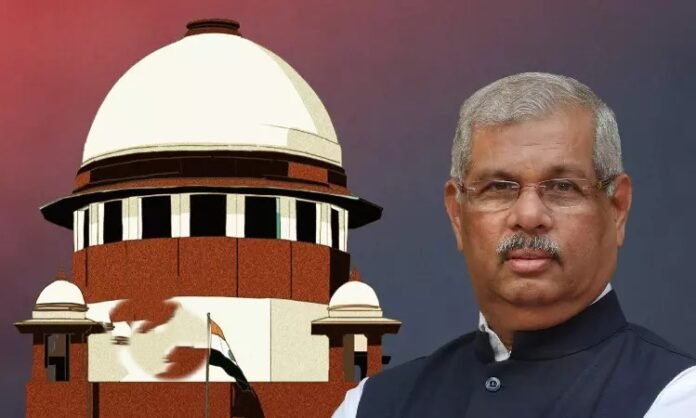Supreme Court advises Kerala Governor, govt to resolve VC appointments in students’ interest. Focus on cooperation over conflict | The Legal Observer
Subheading:
Supreme Court highlights the need for consensus, urging the Kerala Governor and state government to prioritise students over political friction.
Apex Court Calls for Unity Over Discord in VC Appointment Row
In a firm yet balanced observation, the Supreme Court of India on Wednesday, July 30, urged the Kerala Governor and the state government to work together in a harmonious and non-political manner to appoint Vice-Chancellors (VCs) to two key institutions: the APJ Abdul Kalam Technological University and the Kerala University of Digital Sciences, Innovation and Technology.
The bench, led by Justice Surya Kant, underscored that students’ futures should not be compromised due to power tussles between constitutional authorities. The Court noted that while the Governor holds the post of Chancellor, the state government’s role in proposing names and shaping education policy cannot be overlooked.
“We expect both the Chancellor and the government to work together. Students shouldn’t suffer because of this,” the bench observed.
Political Deadlock Impacts Higher Education
The dispute began earlier this year when the Kerala Governor withheld approval for names recommended by the state government for VC appointments. The state, in turn, accused the Governor of overstepping his constitutional role. This ongoing impasse has left leadership roles vacant at two major institutions that cater to thousands of students across Kerala.
Legal experts have weighed in, suggesting that coordination between constitutional offices is not just a matter of good governance, but also essential for upholding the spirit of the Constitution in the education sector.
As per the University Grants Commission (UGC) norms, VC appointments should ideally be made through a selection committee, and finalized with both academic and administrative independence in mind.
Court Urges End to Adversarial Posturing
During the hearing, the Supreme Court expressed concern that both sides—Raj Bhavan and the state secretariat—appeared to be using VC posts as tools of political influence, potentially violating the rights and futures of students enrolled at the institutions.
The Court clarified it was not inclined to issue a binding directive but made it clear that cooperation, not confrontation, is the way forward.
“This is not a war between two constitutional functionaries. The larger concern is public education and administration,” Justice Kant remarked.
Reactions From the Legal and Academic Community
The apex court’s comments have been welcomed by several legal observers and education advocates. Speaking to The Legal Observer, Prof. Ravi Menon, a constitutional law expert, said:
“The Court has struck the right chord. It’s a constitutional nudge that reminds both parties of their duty to serve—not spar over—public education.”
Many faculty members from both affected universities have expressed hope that the judicial intervention will expedite the process, restoring normalcy in campus administration. In the meantime, acting VCs continue to oversee daily operations, though with limited policymaking authority.
Call for Policy Reform
This confrontation has also reignited debate over whether VC appointment processes in India need systemic reform. The Centre and UGC have been urged to consider amending regulations to create a uniform, transparent, and politically insulated framework for academic leadership appointments.
Internal and external stakeholders, including the All India Federation of University and College Teachers’ Organisations (AIFUCTO), have proposed a time-bound model for appointments, ensuring minimal disruption to institutional operations.
The Way Forward
As the Supreme Court refrains from issuing direct mandates, it has nonetheless sent a clear constitutional message: educational institutions are not battlegrounds for ideological supremacy, but temples of learning that demand mutual respect and cooperation from all governing bodies.
With the Court’s reminder that “students shouldn’t suffer”, the focus now shifts to how swiftly the Kerala Governor and the state government will act to fill these critical leadership roles—without further discord.
🔗 For more updates on legal news and views, visit The Legal Observer’s National News Section.
📹 Watch related video coverage on our YouTube Channel.




